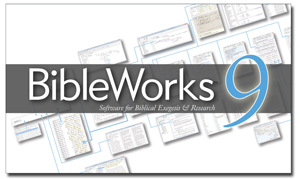Mark Driscoll As Scholar And Exegete
If this sermon was to be written down and handed in as an exegetical paper at most Universities Mark would very likely get a big red F:
I find this entire homily painful at best. First, elohim is simply the common Hebrew word for God, plural in construct but singular in meaning, and as Mark fails to point out takes a singular verb בָּרָ֣א. There is universal agreement that a trinitarian understanding of this noun could not have been the understanding of the priestly author of Gen 1.
Second, targum Neofiti is commonly dated in the second century CE! That’s significantly later than Driscoll argues. In fact, undercuts most of his argument.
Third, “firstborn” is an odd rendering of ברא in Neofiti, and its Greek equivalent is not πρωτότοκος (Col 1:15 is what Driscoll is referencing).
Fourth, I understand that grammatically there is a case to be made for ברא as son (not firstborn) in the Neofiti text; however, seeing as the Targums are translations, interpretations, and clarifications of Hebrew texts I’m not sure how you get by associating it with בָּרָ֣א in the Hebrew text and parsing it as a 3ms verb.
Fifth, the special pleading in Driscoll’s argument is actually quite shocking. Driscoll has stated elsewhere that there is nothing he can learn about the OT from someone who is not a Christian.
Oh but wait! I have a tendentious translation of a targum, whose function I don’t understand, that if I twist the right way with an incorrect analogy from the NT “proves” there were Jews who believed in the trinity before Jesus. Egad.
His opening salvo that there was some Jews who believed in the trinity because “they read the Bible and took it at face value” is so wrong, on so many levels, before he goes into his mistake laden sermon, that it’s quite surprising to me this has not been taken off of the internet.
I understand that operating within a church setting means that as interpretive communities they adopt certain assumptions and presuppositions about interpreting the text. But special pleading that is little more than outright misrepresentation (i.e., lying) seems to me to be contra the pastoral charge.
But what do I know, I’m just a liberal scholar! 😉
HT: Targuman


Oh my! (Gag) Thanks for posting this. Definitely a link coming your way. I cannot believe that he has the audacity to call himself a nerd in the video. I consider myself a nerd, and I take offense at that. A nerd would at the very least know about the singular verb. “F -“
But isn’t there some disagreement as to whether elohim actually refers to a single god, i.e., YHWH, or the plethora of gods, i.e. the divine/heavenly council?
Obviously, the latter is a far cry from the Trinity, but still…
Still have to deal with the plural elohim taking singular verbs.
Right, but there’s the question of when in history that actually happened … or whether or not elohim taking singular verbs was the work of a redactor who was concerned about monotheism, etc.
I’ve encountered that in reading. But, is there any discussion as to why elohim would not have been dropped altogether for the singular form? If someone was concerned about monotheism that would seem more logical than just switching the verb forms. And, that would be a lot of redaction with over 800 occurrences of the word in the Pentateuch alone.
Actually, that disagreement comes later in Genesis when God says “Let us make man…” Then there is argument on whether it is the royal plural (I think that’s what it’s called, something like that) or whether it is to be understood as addressing the divine council. Elohim is still understood singularly.
How horrible!
In my lesser moments I’m tempted to think any time Driscoll handles an Old Testament or Hebrew text it constitutes special pleading. He does stuff with OT texts where if it was someone else he’d be on their case for reading themselves into a text and plugging themselves. If Joel Osteen preached a Nehemiah series for three or four months in which Osteen cast himself implicitly as Nehemiah; his church was the people in Jerusalem; and a church expansion project was the restoration of the walls of the city Driscoll would have probably freaked out and said that was an irresponsible way to handle God’s word. Driscoll had no problem doing that himself, though, which is sad.
Now, to be fair, he’s done some fine teaching from the New Testament. I’m glad to hear he’ll be spending three years in Luke. After not preaching through a gospel in nine years he’s overdue for that.
This is the problem of exegetes when defending their systematic theology or biases as I call it. In my study of expositors I have found two kinds 1) one who study the bible as a lawyer 2) one who study the bible as a journalist
The first divides the truth and becomes the breeding ground of denominations. I bow those who study the bible as a journalist despite seemingly contradictory. Your post is indeed professional journalism and let it be the word ‘as is’.
Thanks,
Levi
But hey, at least we can get valuable leadership lessons from Pastor Mark: http://www.jesusneedsnewpr.net/mark-driscoll-wants-to-teach-you-how-to-be-a-leader/
/sarcasm